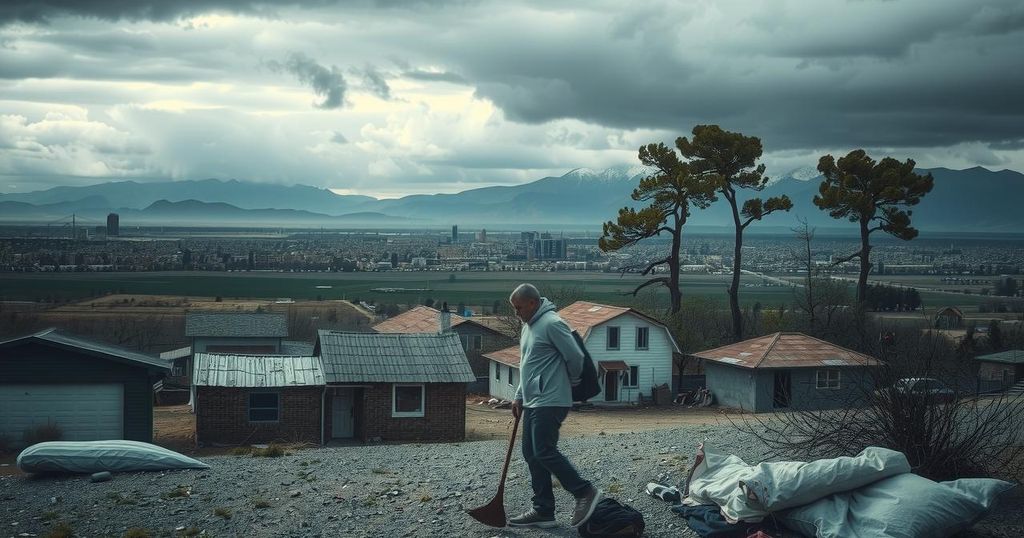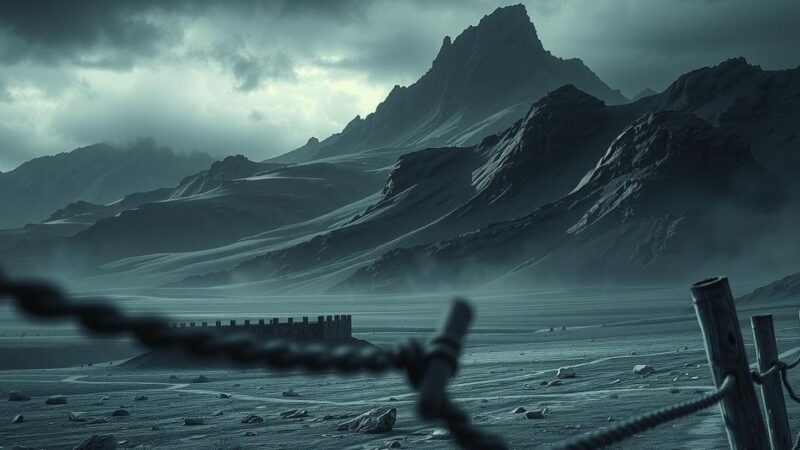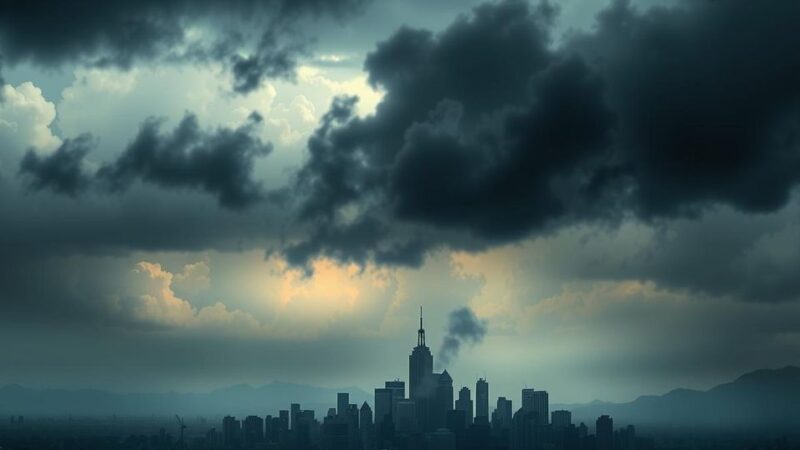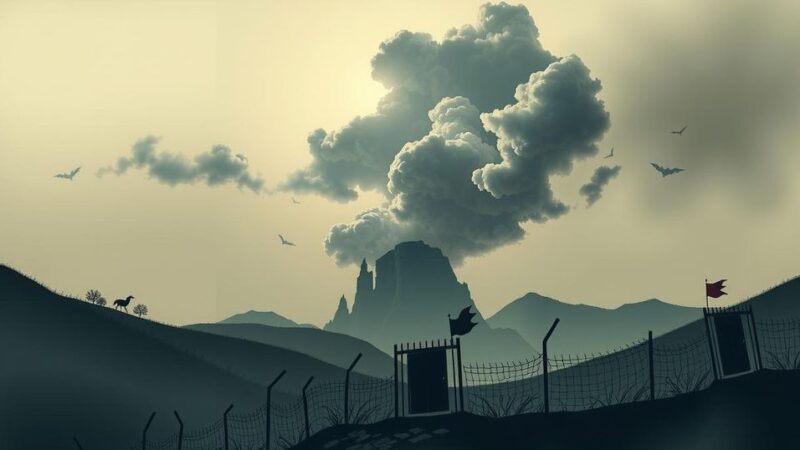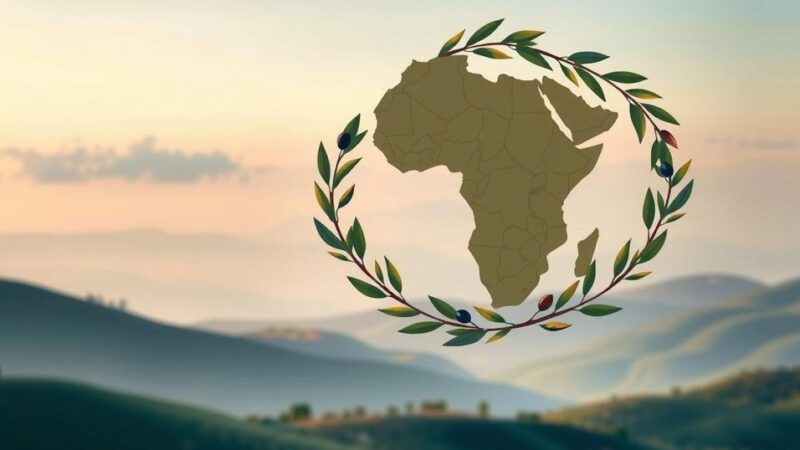As M23 rebels advance towards Goma, thousands are fleeing from eastern DR Congo. DR Congo’s foreign minister has accused Rwanda of aiding the rebels, while M23 calls for the Congolese army to surrender. International calls for ceasefires and peace negotiations are rising in light of the worsening humanitarian crisis affecting over 400,000 displaced individuals in the region.
In recent days, thousands of residents have fled from towns in the eastern region of the Democratic Republic of Congo as rebel forces approach the major city of Goma, which is home to over a million people. Explosions and gunfire were reportedly heard in the city late on Sunday. A spokesperson from the M23 rebel group has indicated that they intend to take control of Goma at 03:00 local time, heightening fears among the local population.
Tensions have escalated as DR Congo’s foreign minister accused Rwanda of waging war by deploying troops to support the rebels. In contrast, Rwanda claims that the DR Congo is aiding militias seeking to destabilize its government. In response to the situation, Kenyan President William Ruto has called for a ceasefire and announced an emergency regional summit involving DR Congo and Rwandan leaders in the coming days.
On the ground, the M23 rebels have urged Congolese soldiers in Goma to surrender to prevent further violence. The group has significantly expanded its control in eastern DR Congo since 2021 and has made swift advances toward Goma in recent weeks, amid intense clashes. Since the beginning of 2025, over 400,000 people have been displaced in the North and South Kivu provinces, as reported by the UN’s refugee agency.
Alice Feza, a displaced individual, expressed despair over the situation, stating that she felt lost having fled multiple towns, including Kiwanja, Rutshuru, and Kibumba, before arriving in Goma. “People are fleeing everywhere, and we don’t know where to go anymore,” she lamented. Furthermore, crucial roads surrounding Goma have been obstructed, and the airport is no longer operational for evacuation or humanitarian missions.
UN Secretary-General António Guterres has called for Rwanda to withdraw its forces from DR Congo and for the M23 to cease its advance. Guterres urged Rwanda to “cease support to the M23 and withdraw from DRC territory” and called for an immediate halt to hostile actions by the M23. This situation has been exacerbated following the deaths of 13 peacekeepers in conflict with the rebels.
The UK has condemned the violence targeting peacekeepers, while France reiterated the call for Rwanda’s withdrawal. Both the DR Congo and the UN affirm that the M23 is receiving backing from Rwanda, a claim the Rwandan government does not refute but attributes blame to DR Congo for the ongoing conflict. Rwanda’s representative at the UN expressed disappointment that the international community condemned the M23 instead of addressing violations by the Congolese army.
As a precaution, the UN announced it would withdraw non-essential personnel from Goma while maintaining essential operations in the DR Congo. The unfolding humanitarian crisis continues to demand international attention and action to stabilize the region and protect the civilian population.
The Democratic Republic of Congo has been plagued by violence due to various rebel groups, especially in the eastern provinces where minerals are abundant. The M23 rebel group, which has been active since 2021, has gained control of significant territories and now poses a threat to major cities like Goma. Regional tensions have escalated, particularly concerning Rwanda’s alleged involvement in supporting these rebel factions. The international community remains concerned about the humanitarian implications of this conflict, as many people are displaced and civil unrest continues to rise.
The situation in the Democratic Republic of Congo remains dire as M23 rebels encroach upon Goma, prompting mass displacements and raising alarms of potential humanitarian crises. Regional leaders are urged to initiate dialogue and seek peaceful resolutions to the escalating conflict. Continued international support and intervention are critical in addressing both the immediate humanitarian needs of displaced individuals and the broader geopolitical tensions in the region.
Original Source: www.bbc.co.uk

